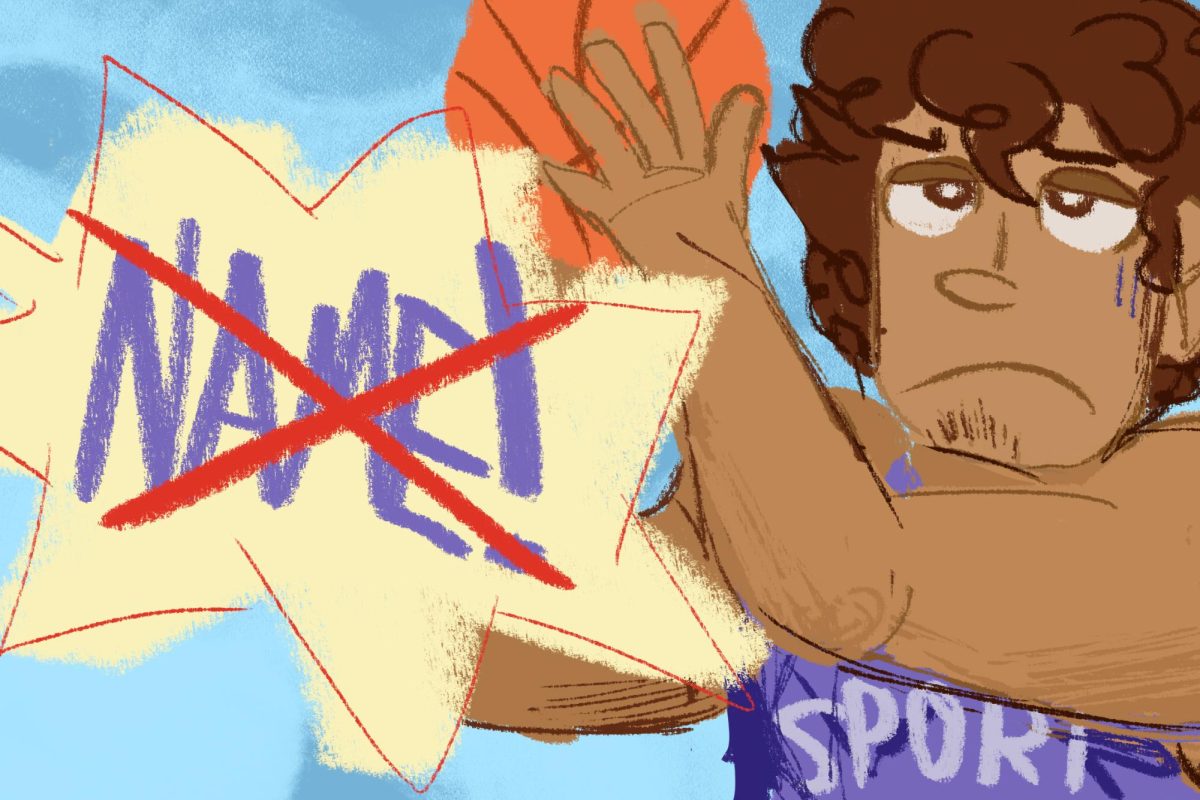In 2020, National Hockey League player Ethan Bear decided to try something new. During a preseason game, he wore a special jersey with his last name written on the back in Cree syllabics — the language of the First Nation tribe Bear’s ancestry hails from. This was the first time that Cree would be represented on the back of an NHL jersey.
Bear’s last name highlighted the NHL’s changing stance on acceptance, inclusion and acknowledgment of the sport’s indigenous roots, but across other sports, accent marks are erased from jerseys, spellings are changed on rosters and names are mispronounced on broadcasts and in-game announcements. Many players of non-European or Western European origin must deal with the butchering of their last names in public.
Battle For Accents
In 2016, the MLB announced a landmark decision: all teams would be allowed to include accent marks on their jerseys. The decision largely impacted the league’s 30.2% of players who identify as Latinos or Hispanic, such as Javier Báez and Adrián González. Though some teams had been including accent marks on players’ names since the 1980s, such as in the case of César Cedeño of the Houston Astros, the formal decision expanded the inclusion of accents to everyone.
But the willing acceptance of accent marks was not the case in every sport. It was only in 2018 that the Mexican National Football Team began to include the tilde and acute accent marks on the back of their jerseys following a viral campaign from the New York Times en Español editor Paulina Chavira using “#puttheaccentonit” across social media.
“People who have those sorts of characters in their name feel that that’s a crucial part of how to spell their name,” said Laurel MacKenzie, a linguistics professor at NYU who researches patterns and variation in languages. “I spell my last name with a capital K. A lot of people don’t do that, but it’s a tradition in my family. That’s part of my name.”
In the world of hockey, accents are far less welcome than in soccer or baseball. The NHL’s Montréal Canadiens, a name itself officially spelled with an accent mark, only introduced accent marks into its jersey typography in 2013, becoming the first team to do so in the league. The decision was initially made to correct French Canadian names with acutes but expanded to include accent marks from other languages like Juraj Slafkovský, who is the first Slovak NHL player to have an accent mark on his jersey.
However, it is not the case across the league. Simon Holmström, a 22-year-old Swedish right-winger for the New York Islanders, spells his last name with an “ö,” a fully separate letter from “o” in Swedish. Despite this, his last name appears incorrectly as “Holmstrom” on his Islanders jersey.
“I don’t see why teams wouldn’t be able to put the accent marks there,” said MacKenzie.
“It seems more deliberate, like ‘We’re English speakers here. Let’s get rid of those marks.”
Getting It Right
Beyond accent marks, the proper pronunciation of names is another battle – one with far more public consequences.
“Pronouncing someone’s name the way they want it to be pronounced is a sign of respect,” said MacKenzie. “And you wonder, does that mean you were not listening? Or, do you not care? There’s a sense that the person who misses the name is just not catching some aspect of your identity.”
MacKenzie described that her name, Laurel, is often mistaken for ‘Lauren.’ She said it was a normal error, but it was also normal to feel slighted if someone isn’t pronouncing it right.
Senior Ruby Naylor, a play-by-play announcer for NYU’s athletic communications, agreed with MacKenzie’s assessment.
“I think if you don’t go to all the lengths that you can to get a name correctly, then it’s definitely disrespectful because all the tools are there for you,” Naylor said.
As a play-by-play announcer, Naylor has several years of experience learning to pronounce player names correctly. Her advice: go directly to the source. While some schools, including NYU, provide phonetic pronunciation guides for team rosters, Naylor finds asking players and coaches directly is the best choice.
“The phonetic guide is wrong a lot of the time,” Naylor explained. “Sometimes I will look at the guide and there will be a pronunciation completely different from what the player told me.”
She and MacKenzie both also noticed that players with non-European names are more commonly mispronounced or have incorrect phonetic guides.
“It’s a sort of ethnic and racial microaggression when basically white Euro-Americans refuse to pronounce or are unable to pronounce Spanish heritage names or African-American culturally associated names,” MacKenzie said. “It’s a failure on the part of the dominant culture to try to come to terms with names that are less common in the dominant culture.”
Contact Avery Hendrick at [email protected].















































































































































